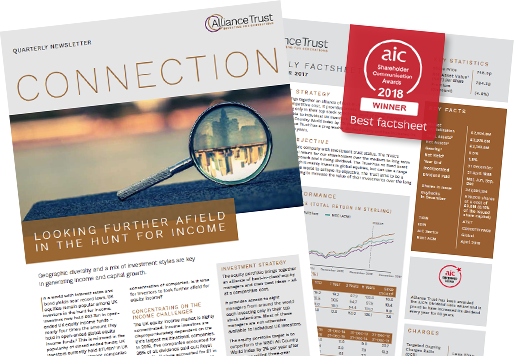Can the ‘Magnificent Seven’ continue their dominance?
The US stock market has been an extraordinary contributor to global stock market returns over the past 15 years. Growth stocks have been the main driving force: first popular in a world of low growth and cheap financing, then during the pandemic chaos, and then again last year as excitement brewed over the nascent technology ‘Generative AI’.
As a result, some truly astounding mega-sized firms have emerged. Chief among them are seven companies popularised as the ‘Magnificent Seven’: Alphabet, Amazon, Apple, Meta, Microsoft, Nvidia, and Tesla. Combined, they have a total market value of around $12 trillion – roughly equivalent to the combined economic output of Germany, Japan, and India.
As such, it has meant that just seven companies represent around 16% of global markets according to firm size – an extraordinary level of concentration in the upper echelons – creating risks that are perhaps cause for caution to investors. It seems more than ever, now is the time for well-diversified global portfolios with an active approach to risk management, asset allocation and stock selection.
A stellar year
2023 was an eye-popping year for the Magnificent Seven as they rode to fresh highs on the back of AI optimism, climbing 107% collectively. As a result, given their job is to reflect market weighted indices, index trackers have been gobbling them up– creating trading momentum in the stocks.
Yet, size is a poor reason to buy stocks. As the chart below shows , history demonstrates that investing in the very largest companies in the S&P 500 often leads to one-year underperformance when compared to investing in the broader market.

This is because momentum trading can unwind quickly, not to mention an awful lot of good news is likely to be in share prices, meaning it doesn’t take much to knock such optimistic values down a few rungs.
These risks are often unacceptable to portfolio managers – which is why most active portfolios have tended to be underweight the Seven when compared to benchmark in recent years. As a result, performance comparisons against passive trackers point to 2023 as being an annus horribilis for active US focused large-cap funds.
But patience is a virtue in investing and stock pickers may soon have their day in the sun. With markets looking concentrated relative to history – there’s optimism that this concentration may start diluting and a diversified approach will benefit.
Does this mean portfolios should be bailing from the Magnificent Seven en masse?
Where will the Magnificent Seven ride to next?
In such concentrated markets, choosing not to own stocks becomes as important as choosing to own them. Alliance Trust is case in point: it holds five of the seven - Alphabet, Amazon, Nvidia, Meta and Microsoft – but does not own Apple or Tesla.
Excluding these two companies proved beneficial this January following poor results: Tesla’s shares slumped after it reported that sales growth could be notably lower even as it moved to cut prices; Apple was similarly disappointing as concerns emerged over weak iPhone 15 demand and increased regulatory scrutiny.
Yet, for the remaining five, the stock pickers at Alliance Trust believe the long-term investment case is compelling, even if valuations appear a little stretched.
First, there is no doubting these are extremely high quality businesses with deep economic moats protecting them from competition: Meta and Alphabet in digital advertising; Amazon and Microsoft in cloud infrastructure; Nvidia in chips. This furnishes them with higher margins relative to the wider market – the free cashflow of which can be used for investing in their businesses and further entrenching their dominance.
Second, they are well positioned to take advantage of the AI mega-theme which may super-charge earnings growth: they have vast quantities of data, high quality engineers, and large amounts of capital needed for research and development.
Furthermore, across the AI ‘stack’: there’s Nvidia’s super-chips to power the large language model (LLM) AIs; Microsoft’s Azure and Amazon’s AWS cloud infrastructure for running the LLMs on large datasets; there’s the LLM providers themselves including Meta’s LlaMA and Alphabet’s PaLM; and then there’s Alphabet and Microsoft who are primed to turbo-charge their software with AI and up-sell to their huge numbers of clients.
So far in 2024, these five are proving the investment case to be sound. At time of writing, year-to-date, Nvidia has soared around 60% .
Managing the risks
Though the AI theme points to exciting opportunities for at least some of the Seven, there are risks too: the hype may be overblown and leave earnings languishing. Ben Seager-Scott, head of multi-asset at Evelyn Partners, cautioned against this in a recent FT article, remarking that investors needed to avoid the ‘narrative fallacy’ - where compelling stories rose-tint a stock picker’s judgement on underlying company fundamentals, resulting in poor investment decision-making.
Large-scale themes also serve as tides: raising all boats perceived as beneficiaries. Over time, winners and losers will likely emerge – requiring selectivity from stock pickers and a diversified approach to managing idiosyncratic risks.
In addition, the Seven’s global operations leave them exposed to geopolitical risks too - where a complex web of supply chains and end-markets are vulnerable to disruption.
And finally, they face rising regulatory risks. Super-massive companies with lots of power and wealth often come under intense scrutiny by regulators who may seek breaking-up perceived monopolies. Currently, four out of the Seven are in the throes of antitrust lawsuits.
Within a well-balanced and globally diversified portfolio, Alliance Trust’s stock pickers will continue to ignore the hype and focus on the drivers of long term returns: companies with strong fundamentals, who are able to consistently grow and compound their earnings and entrench their advantages over time.
This information is for informational purposes only and should not be considered investment advice. Past performance is not a reliable indicator of future returns. The views expressed are the opinion of Towers Watson Investment Management (TWIM), the authorised Alternative Investment Fund Manager of Alliance Trust PLC, and are not intended as a forecast, a guarantee of future results, investment recommendations or an offer to buy or sell any securities. The views expressed were current as of January 2024 and are subject to change. Past performance is not indicative of future results. A company’s fundamentals or earnings growth is no guarantee that its share price will increase. You should not assume that any investment is or will be profitable. Information contained herein has been obtained from sources believed to be reliable, but not guaranteed.
TWIM is authorised and regulated by the Financial Conduct Authority. Alliance Trust PLC is listed on the London Stock Exchange and is registered in Scotland No SC1731. Registered office: River Court, 5 West Victoria Dock Road, Dundee DD1 3JT. Alliance Trust PLC is not authorised and regulated by the Financial Conduct Authority and gives no financial or investment advice.
Read more investment insights







